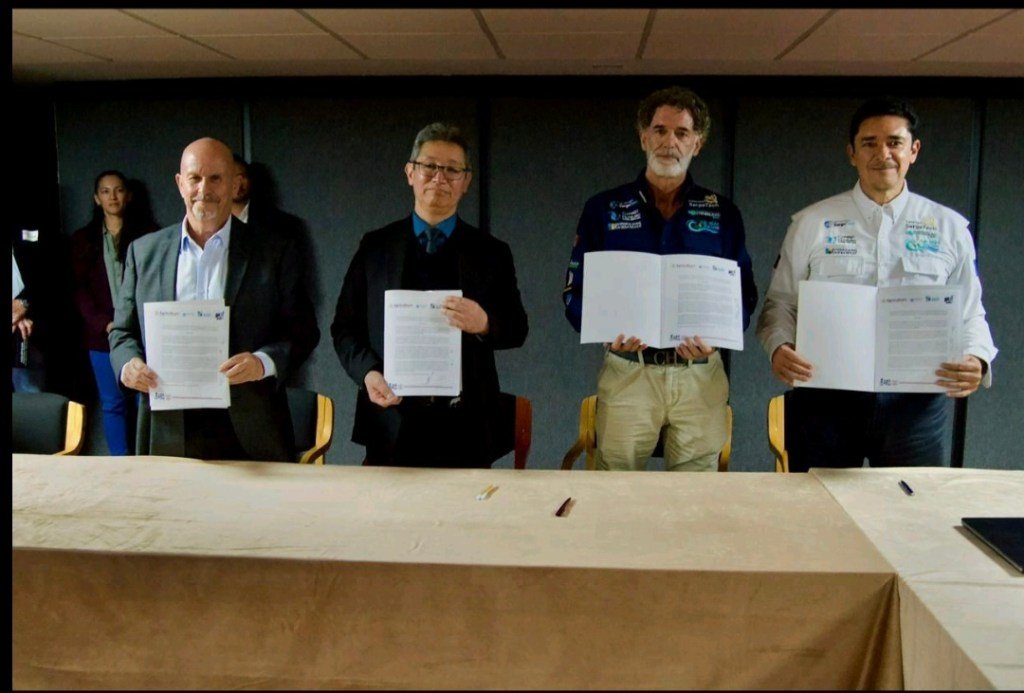Riviera Maya, Mexico — The Riviera Maya Hotel Association (AHRM), led by Toni Chaves, through its initiative The Seas We Love (TSWL), and the Mexican Institute for Research in Sustainable Fishing and Aquaculture (IMIPAS) have signed an agreement that marks a significant milestone in the fight against sargassum in the Mexican Caribbean.
Formalized in a Letter of Collaboration, this agreement focuses on integrating efforts between the hotel sector and the scientific community to address the sargassum problem in a sustainable manner. The involved organizations recognize the urgent need to implement effective actions to treat the massive arrival of the seaweed.
The principal objective of the collaboration is to develop and implement innovative systems for the containment and collection of sargassum in deep waters. Through the articulation of their capabilities, AHRM and IMIPAS project a collaborative approach that seeks not only to mitigate the arrival of sargassum but also to convert this environmental challenge into a viable economic opportunity.
A Strategic Milestone of High Value
The recent signing of the Letter of Collaboration represents a significant advance in the valuation of sargassum at a national level. This strategic alliance formalizes the integration between the scientific and technical environment of IMIPAS and the hotel sector, creating a framework for joint work that promises to establish lasting solutions.
This synergy is expected to foster the design of proven methodologies and the collection of essential oceanographic data for the management of sargassum as a sustainable resource.
Access to Key Information and Methodologies
One of the most relevant advantages of the agreement is the access, by the hotel sector, to key information that will facilitate the development of specialized collection gear. These methods are not only applicable on the high seas but are also centered on transforming sargassum management into a sustainable fishing activity.
This approach will allow for the utilization of the seaweed's potential and contribute to the circular economy in the region.
Acceleration of the Regulatory Framework
Furthermore, the agreement has significant implications for accelerating the implementation of the regulatory and operational framework of the Coastal Planning and Development Program for the Bioeconomy Industry (PODECIBI) in Quintana Roo. The collaboration helps facilitate the obtaining of commercial fishing permits, which will consolidate Mexico as an international leader in marine bioindustries.
Positioning Mexico as a Reference
With strengthened scientific and technical integration, the response capacity against sargassum in the Mexican Caribbean will be notably increased. This approach seeks to mitigate both the environmental and economic impact of the sargassum phenomenon, which has affected both local communities and the tourism industry in the region.
For a Sustainable Fishery
The joint work between AHRM and IMIPAS promotes a vision that transforms a serious environmental problem into a sustainable opportunity. Through innovative and collaborative strategies, the aim is to establish the management of sargassum as an exploitable resource, thereby contributing to the health of the marine ecosystem and the well-being of coastal communities.
The synergy generated by this agreement seeks to lay the foundations for a more sustainable future in the Mexican Caribbean.
Discover more from Riviera Maya News & Events
Subscribe to get the latest posts sent to your email.
